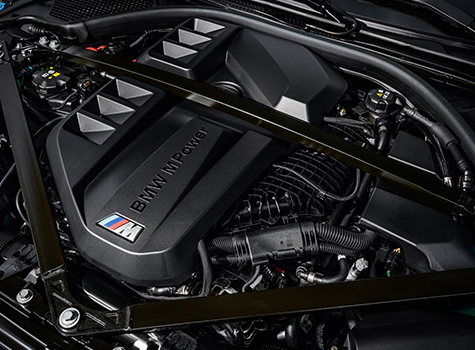The Future of Performance: Hybrid and Electric Prospects for the BMW M4 Engine
Hybrid and Electric Prospects for the BMW M4: A New Era in Performance Technology
The BMW M4 engine is synonymous with high performance, engineering excellence, and driving thrill. Since its debut, it has captured the hearts of car enthusiasts around the world. From its powerful inline-six engine to its precise handling, the M4 is more than just a car—it’s a performance machine designed to offer the ultimate driving experience.
Over the years, BMW has continuously improved and refined the M4’s engine. It has evolved to meet the growing demands of speed, power, and efficiency. However, as the automotive industry changes, so does the landscape for performance vehicles like the BMW M4. The future is pointing towards hybrid and electric technologies, leading many to question what lies ahead for the iconic M4 engine.
In this evolving industry, manufacturers are adapting to environmental regulations, consumer preferences, and technological advancements. The question isn’t just about performance anymore. It’s about how performance can be sustained in a world moving towards electrification. What does this mean for the future of the BMW M4 engine? Let’s explore these prospects in greater detail.
The Legacy of the BMW M4 Engine
The origin of the BMW M4 runs deep into the history of BMW’s sporting legacy. Engineered from its earliest iterations to ensure smooth performance on the track but on the road, every aspect-from acceleration, handling, and braking has been fine-tuned to deliver a dynamic driving experience. That’s not about speed; that’s about control and precision.
Iconic M4 models have left their mark. From the first M3 Coupes to the latest generation, every model made history by raising the bar of what a sports coupe can do. M4 enthusiasts are not merely in it for the raw power that the automobile delivers, but also like the even flow and equilibriums. Looking into the next generation, the BMW M4 engine will be a key player in shaping what its next evolution will entail.
Electrification in the Automotive Industry
The auto industry is about changing its dynamics. Gone are the years when the shift towards electric vehicles had only begun to inch their way. From being a dark looming environmental threat, many car manufacturers are committing themselves to electrification. Electric vehicles are not only about reduced emissions but more about making better performance cars that can be efficient.
Electric cars are provided with several benefits. They do not emit any form of emissions, and they have fewer moving parts, along with instant torque. This made their electric motors extremely responsive to deliver fast acceleration. As such performance cars as the BMW M4 are concerned, this might open new doors. However, major challenges appear while trying to preserve the traditional driving experience for those enthusiasts.
Hybrid Powertrains: A Middle Ground
Hybrid powertrains might be a very good solution. They combine the best of two the efficiency of electric power and the known old familiar internal combustion engines. It is a car with heritage, with a bridge between traditional performance and the future of electric mobility, as BMW likes to see it. Hybrid technology is quite favourable when being installed in a vehicle such as the BMW M4, whose main reason for being on the road is the performance and driving dynamics.
A hybrid system could provide electric-only driving in low-speed or city situations but release the combustion engine’s full power when it needs to perform. It may even open up the possibilities of reduced emissions and fuel efficiency without sacrificing driving excitement. For BMW, it could be its chance for a more balanced M4.
BMW M4 Indicators of a Possible Hybrid or Electric Model
This can be a very exciting possibility: a hybrid or an electric BMW M4 engine. From the point of view of technology, this is perfectly possible – to combine hybrid or electric powertrains with the M4 platform. Indeed, BMW has already performed success in developing electric and hybrid power trains for other models. Thus, opportunities also arise for the M4 from these technological developments. The problem only lies in the conflict: weight, as opposed to battery capacity, and performance.
Of course, design considerations would play a central role. The M4’s aggressive surface lines would have to be retained but with accommodations for space required for the batteries and electric motors. Optimized aerodynamics and proper weight distribution about the expected driving dynamics of an M4 would be also significant. Innovations must rub shoulders with tradition by the BMW engineers.
The Future of the BMW M4: A Hybrid or Electric Evolution
For the BMW M4, this future is one of trying to balance tradition with innovation. BMW has to integrate new technologies cautiously while still maintaining those things that make the M4 what it is: a performance car many folks love. That’s a delicate balance, but it’s one BMW is well-equipped to walk. Combine their performance engineering with advancements in electric and hybrid technology, and BMW might very well push it all onto an exciting new generation of the M4. Thus, the M4 will be a highly crucial model for BMW in the company’s electric future. BMW has declared that it will focus more on electrification, and here, in this electric new age, the M4 can prove to be the performance flagship. Once BMW produces an electric version of the M4, it would prove that BMW’s technology can perform and is confident that high-performance cars do not necessarily have to be exciting and sustainable.
READ MORE